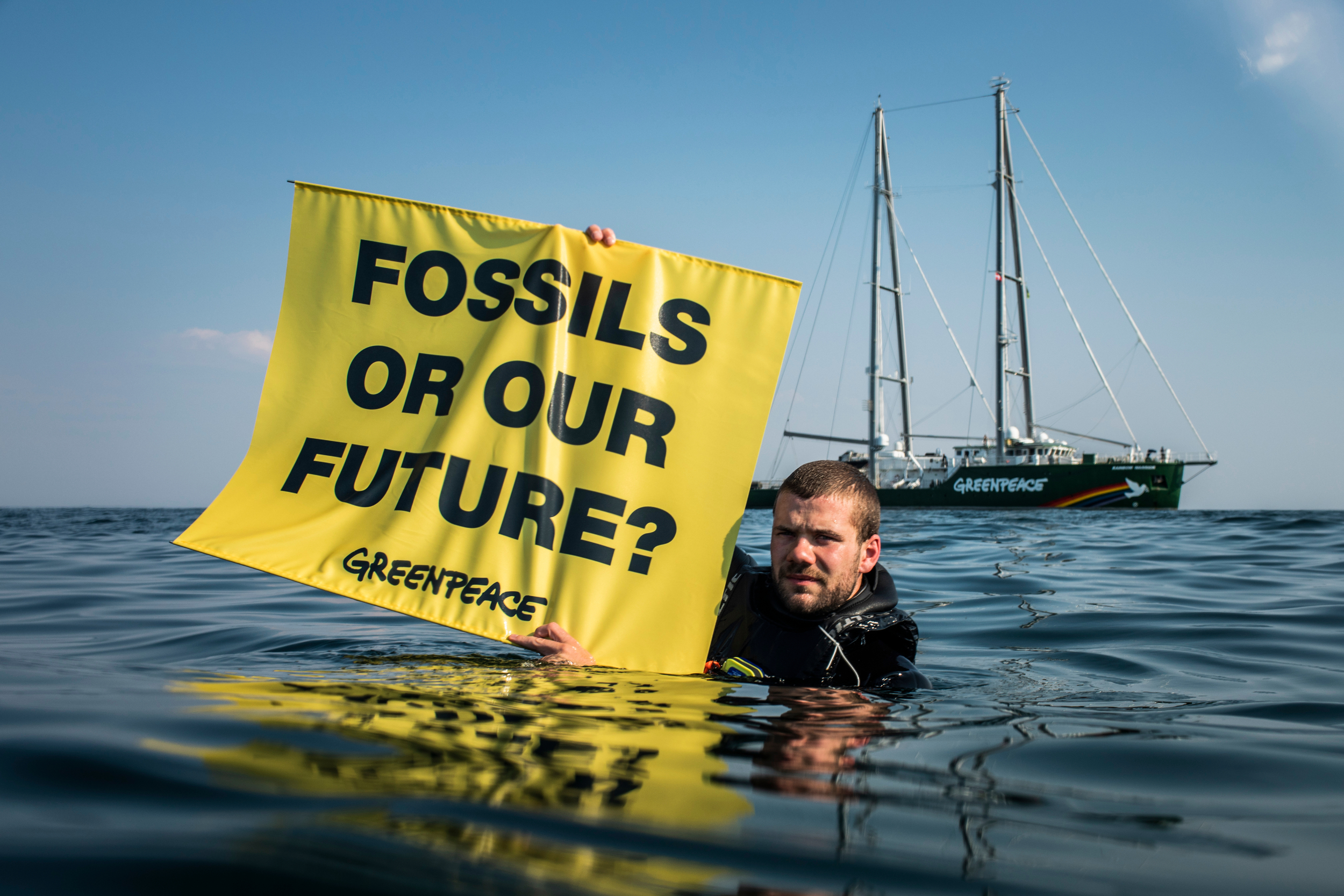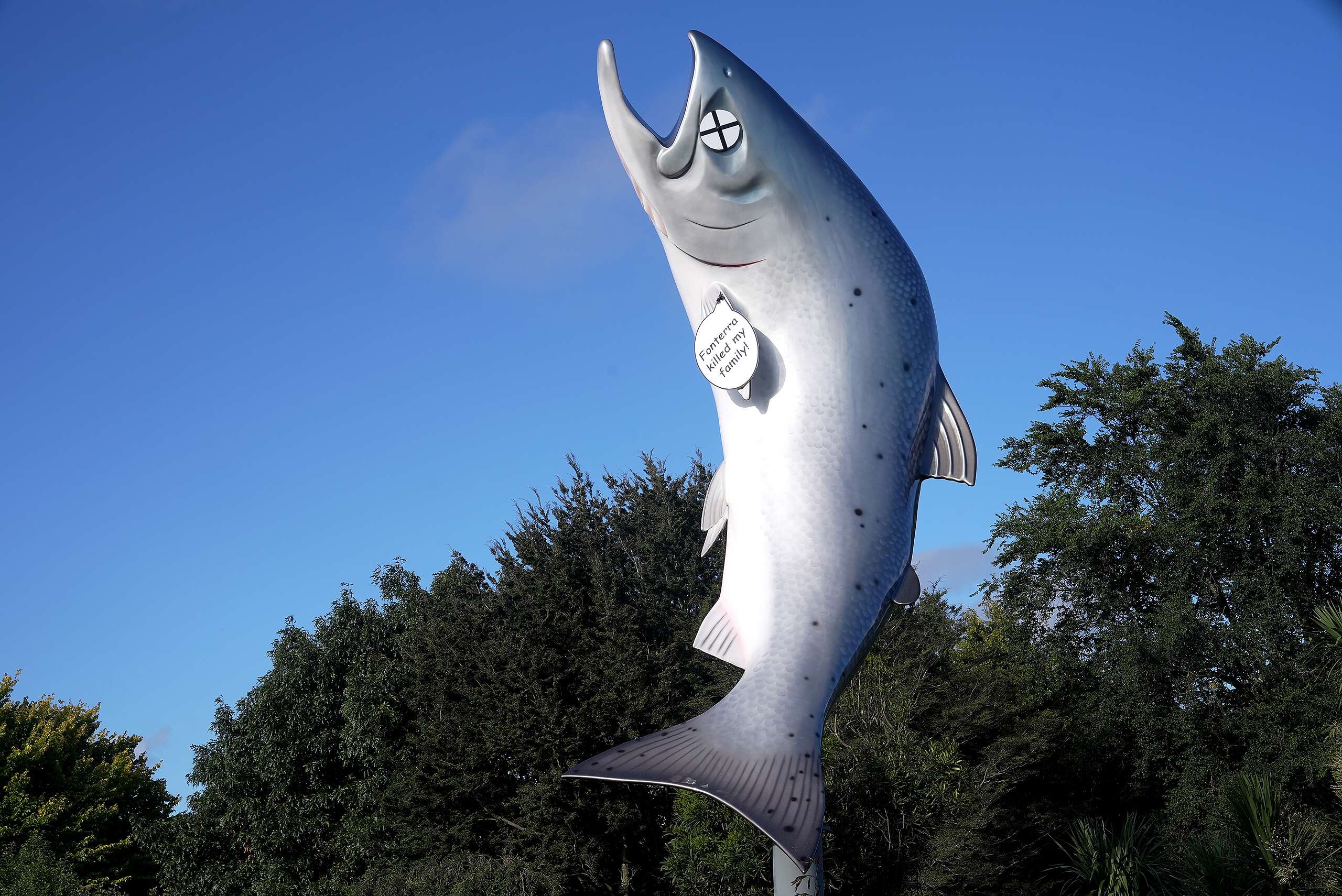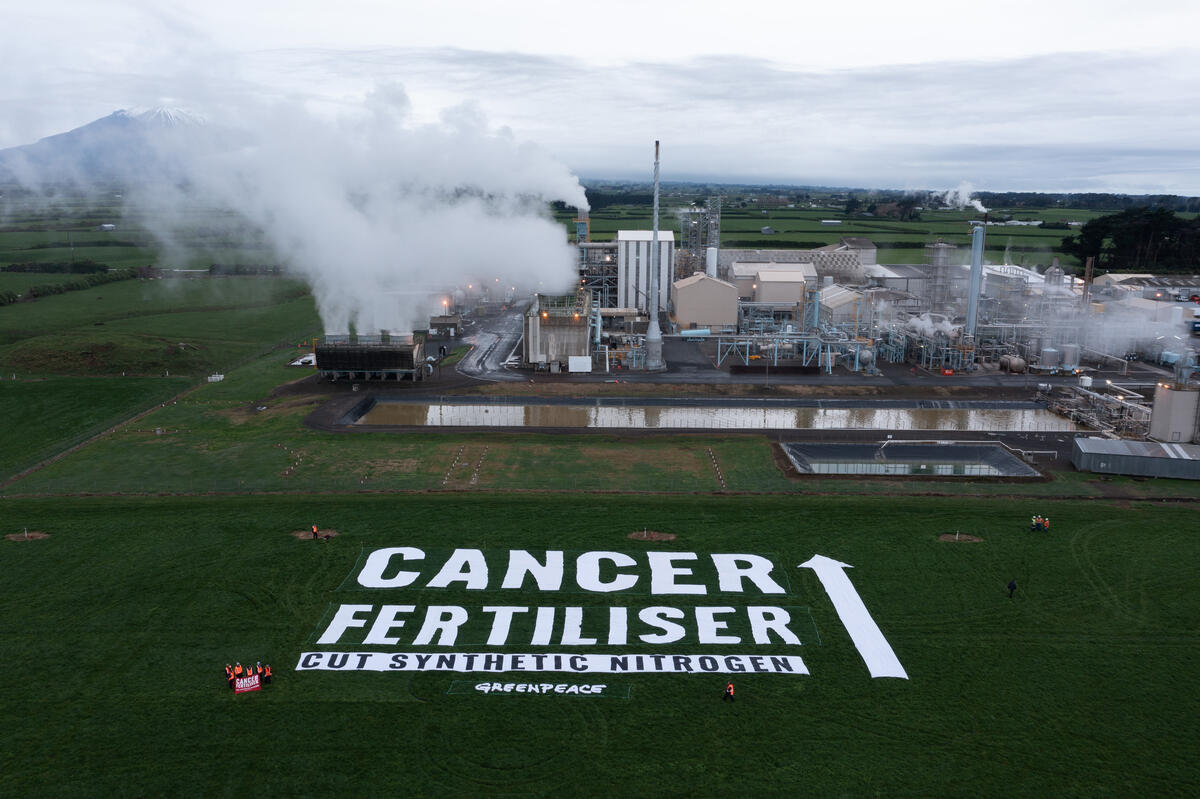Greenpeace says that Federated Farmers’ intent to ‘go to battle’ over methane targets is yet another example of the agri-business lobby group’s selfish approach to life on our collective home.
Federated Farmers recently stated that they would not accept a 24% reduction of methane emissions by 2050, the lowest end of New Zealand’s current methane target range and far below the Climate Commission’s updated recommendation of 35–47%.
Federated Farmers, Beef + Lamb and Dairy NZ have been pushing for methane targets aligned with ‘no additional warming’ – an approach that has been harshly criticised by climate scientists, the Climate Commission and the Parliamentary Commissioner for the Environment.
Greenpeace spokesperson Amanda Larsson says “The New Zealand dairy industry is the country’s worst climate polluter. The oversized dairy herd is cooking the climate with superheating methane emissions, yet agri-industry lobby groups refuse to play their part in tackling the climate crisis, instead leaving it to the rest of us to clean up their mess.
“Yet again, Federated Farmers are attempting to convince us that they are the exception to the rule. But this new concept they’re promoting – no additional warming – is not based on science. They’ve simply come up with a way to count emissions differently so that they can justify doing less.”
Methane emissions are responsible for a third of global heating to date, and the agricultural industry is the single biggest source. Those emissions are rising faster than at any other time in history.
“The consequence of the livestock industry selfishly absconding their climate responsibility is that everyone else has to pick up the slack. Or, alternatively, that we all suffer the consequences of more floods, storms, fires and droughts. All of which affect frontline farming communities first,” says Larsson.
Greenpeace says the key flaw in no additional warming is that it ignores the historic pollution caused by intensive livestock farming.
“It’s a bit like expecting your mortgage to magically be written off. The catch is that your debt still exists – it’s just that someone else will have to pay for it. Ignoring the historic methane emissions from agriculture won’t make that pollution – or its warming impact – go away.”



